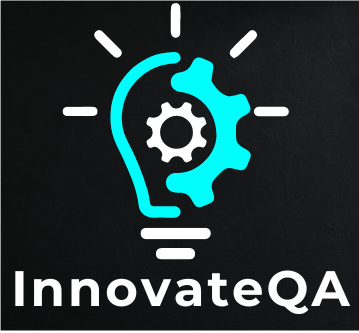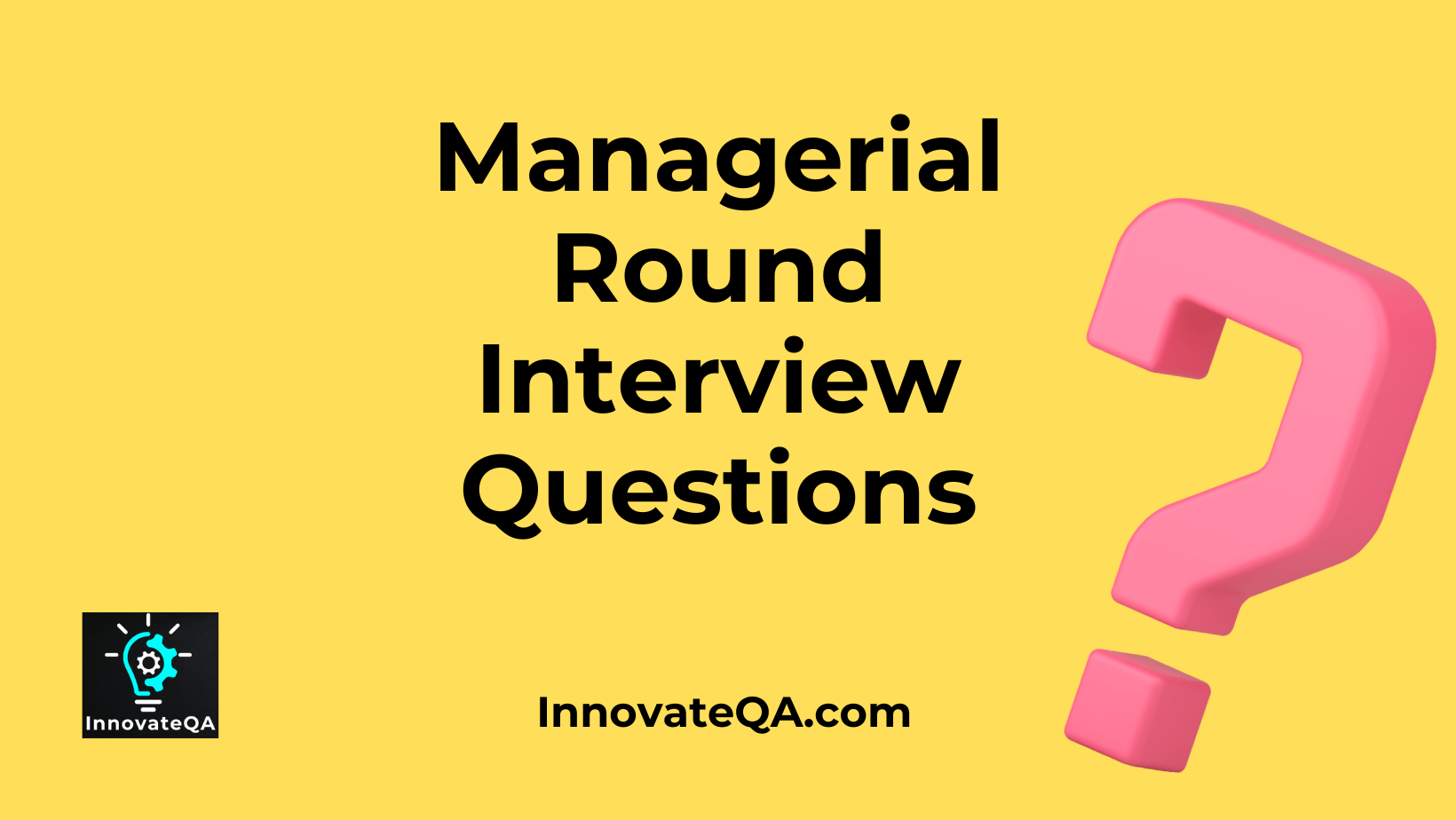Table of Contents
ToggleIntroduction
The main goals of managerial round interviews are usually to evaluate a candidate’s problem-solving, communication, leadership, and decision-making abilities. The following list contains managerial round interview questions with suitable responses:
Can you describe your management style?
My managerial approach is results-oriented and collaborative, I think. I think it’s important to create a welcoming and cheerful work atmosphere where team members are encouraged to share their thoughts. I establish specific objectives, offer direction and assistance, and promote candid dialogue. In the end, I prioritize meeting goals quickly and making sure the team succeeds.
How do you handle conflicts within your team?
In order to resolve disputes, I encourage open conversation. I support my team members in sharing their thoughts and worries as long as we have productive conversations. I mediate disputes when needed, making sure that everyone is made to feel heard and understood. Finding a middle ground and working toward a solution that serves the team and achieves our objectives is how I see things getting done.
Describe a situation where you had to make a difficult decision. How did you handle it?
In a prior position, we had to reduce the team due to financial constraints. I tackled this task by carefully evaluating the abilities and contributions of every team member. In order to facilitate a smooth transition, I offered resources and support to the impacted persons in an open and honest manner. We navigated the problem with minimum disruption despite the fact that it was a difficult decision, since we approached it with empathy and transparency.
How do you motivate your team and promote a positive work culture?
In my opinion, accomplishments of whatever size should be honored and acknowledged. I encourage a pleasant work environment by giving regular feedback, praising effort, and offering chances for advancement. To improve unity, I also support team-building exercises and honest communication. At the end of the day, a driven and enthusiastic team is more likely to generate excellent work and accomplish team objectives.
In a fast-paced work atmosphere, how do you manage pressure and stress?
I keep myself organized and prioritize things well in order to manage stress. I rely on my team’s assistance and assign jobs efficiently. I keep my cool under pressure and consider all the facts while evaluating the circumstance. I think that keeping a calm and positive mentality sets the tone for the team and enables us to successfully handle obstacles as a unit.
How do you foster innovation and creativity within your team?
I support innovation by cultivating a culture that honors originality and creativity. I set aside time for brainstorming meetings where team members are free to express their ideas without worrying about being judged. Furthermore, I encourage an environment of continuous learning by motivating the team to investigate new technologies and emerging trends in the industry as a whole. A culture of creativity is also enhanced by praising and appreciating innovative ideas.
How do you manage your team members' performance reviews and feedback?
I consider performance evaluations as a cooperative effort. At the start of every performance cycle, I set out specific objectives and targets, and I offer continuous feedback all year long. I address both areas for growth and strengths during formal reviews, giving specific examples. In order to give each team member the support and resources they require to succeed in their positions, I collaborate with them to develop individualized development plans.
Describe a situation where you successfully motivated a team member who was underperforming.
Before taking any action, I think it’s important to identify the underlying cause of underperformance. One team member was having trouble since they were unclear about their responsibilities. I had an open discussion to determine the issues and we worked together to create a strategy to resolve them. By giving them more training, establishing achievable goals, and continuing support, the team member was able to perform better and recover confidence.
How do you manage deadline pressure and conflicting priorities?
Managing conflicting priorities requires effective prioritization. I begin by evaluating each task’s urgency and significance. I keep my team members informed about my priorities through communication, and I have no hesitation to assign work in accordance with team members’ areas of strength. Furthermore, I always allow for a little breathing room in project schedules to accommodate unanticipated challenges. This method has worked well for us to fulfill deadlines without sacrificing the quality of our work.
Describe a situation where you had to resolve a conflict between two team members.
Resolving conflicts is a crucial component of leadership. Two team members’ argument at a previous position was negatively impacting the dynamics of the group. In order to hear each person out, I led a private meeting where I encouraged active listening and found points of agreement. We had clear guidelines for cooperation and communication, and I stepped in to make sure the resolution was maintained.
How do you promote diversity and inclusion within your team?
I’m dedicated to creating a diverse and welcoming workplace. I aggressively look for different points of view while building teams and working on projects. I promote a culture that embraces diversity and make sure that every team member feels heard and appreciated. I also back and encourage diversity and inclusion programs within the organization, like training sessions and mentorship programs.
Can you share an experience where you had to lead your team through a crisis or unexpected challenge?
In a prior position, unexpected technical problems occurred during a product launch. I quickly put together a crisis management team, identified the root cause of the problem, and had open lines of communication with every individual involved. We moved resources, created a backup plan, and worked continuously to fix the problems. We successfully launched the product on a revised timeline, avoiding potential negative effects on our reputation, thanks to strong leadership and teamwork.
How do you handle delegation and ensure that tasks are distributed effectively within the team?
One essential component of leadership is delegation. To assign duties properly, I evaluate the workload, talents, and strengths of each team member. It’s critical to communicate expectations and timelines clearly. I ensure to it that team members have the resources and support they need to do their jobs. I am able to remain informed about progress with regular check-ins, and I’m always willing to modify tasks in response to changing priorities.
How do you handle situations where there is resistance to change within your team?
Since change can be challenging, I start by addressing any objections or concerns. I explain the reasons for the adaptation, highlighting its advantages for each member of the team as well as for themselves. By giving team members the chance to express their opinions and ideas, I help them feel invested in the final result. I also provide information and support to team members so they can successfully adjust to the changes.
Tell me about a time when you had to balance short-term goals with long-term objectives.
A typical managerial difficulty is striking a balance between short- and long-term objectives. In a prior position, we were working on a long-term strategic project and had to meet a tight deadline for a client. By carefully allocating resources, I made sure that our long-term plan would not suffer in the process of meeting the urgent demands of our clients. Achieving both short- and long-term goals required careful preparation, excellent communication, and the ability for effective prioritization.
How do you encourage your team members to maintain a good work-life balance?
Promoting work-life balance is essential to having a positive team environment. I urge team members to take breaks and establish clear expectations for working hours. I try to avoid working too much overtime and offer flexibility when it’s possible. I also set an example for others to follow by stressing the value of maintaining a positive work-life balance. By conducting routine assessments of the team’s workload and stress levels, I am able to see possible problems early on and take appropriate action to make sure everyone on the team can succeed professionally and personally.
Can you share an experience where you had to lead a cross-functional team to achieve a common goal?
Strong teamwork and communication abilities are necessary for leading a cross-functional team. I recently supervised a project where I brought together people from several departments to collaborate on a single objective. I organized frequent meetings to make sure everyone was on the same page, quickly resolved any interdepartmental issues, and encouraged open discussion. We were able to effectively collaborate across functional boundaries to accomplish the project’s goals by promoting a sense of unity and highlighting the shared goals.
How do you ensure effective communication in a virtual or remote work environment?
Working remotely requires effective communication. I use a variety of methods of interaction for updates on projects, regular meetings, and online discussions. Alignment can be maintained by writing emails and project documents in an organized and straightforward way. I encourage open communication and make sure team members are at ease enough to share their queries or concerns. By utilizing technology and encouraging open communication, we close the gap caused by geographical separation.
Conclusion
Always remember to tailor your answers to the particular needs of the position you are looking for as well as your own experiences. To make your answers more organized and effective, use the STAR (Situation, Task, Action, Result) technique into the examples you provide from past experiences.
You May Also Like
🔝4️⃣5️⃣➕ Manual Testing Scenario Based Interview Questions 2024 🚀
🤖 🔝6️⃣5️⃣ ➕Automation Testing Interview Questions 2024 🚀
🔝6️⃣5️⃣➕ API Testing Interview Questions 2024 🚀
🔝6️⃣5️⃣➕ Postman Interview Questions 2024 🚀
🔝3️⃣0️⃣➕ Cucumber Interview Questions 2024 🚀
🔝5️⃣0️⃣➕ TestNG Interview Questions 2024 🚀
🤖🔝💯+Selenium Interview Questions For Experienced 2024 🚀
🍵Top 💯+ Java Interview Questions For Automation Testing 2024 🚀
🔝6️⃣5️⃣➕ JMeter Interview Questions 2024 🚀

